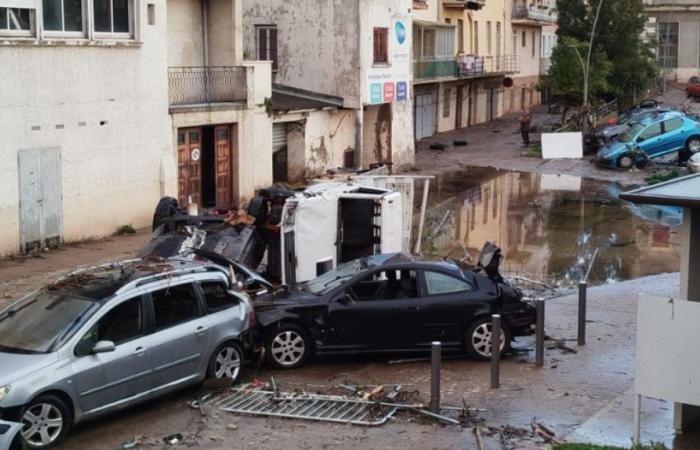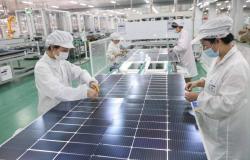One month after the floods which affected the Loire and Haute-Loire, what are the solutions to avoid having such damage again? Attempt to answer with Hervé Cubizolle, geographer at the Jean Monnet University of Saint-Etienne, focusing on the town of Rive-de-Gier.
France Bleu Saint-Etienne Loire: Why was Rive-de-Gier particularly affected during the floods?
We are geographers, we look at maps, but everyone can also see it on an aerial image, on the internet or elsewhere. And we see that it is a very narrow, steep valley. And in this valley you have everything. You have the railway line, you have roads, you have homes, you have cities, urban areas, you have shopping centers, industrial centers, industrial zones. You have a concentration that only increases. When we look at the maps since the 1950s, we occupy the flood bed of the river and a river overflows. So when you're on the flood water site, you're being swept away by the flood waters. So obviously, there, it takes on dramatic proportions, since there are so many people and activities located there along the route of the river that it is inevitably catastrophic.
France Bleu Saint-Etienne Loire: but why is this city, more than the others, affected each time by floods?
I have worked on these questions, but not particularly on the Gier valley. I am not a specialist, but it is the geomorphological and geographical configuration. We are in a relatively steep valley, so there is a flow. And as there is a high concentration of population and activity, the damage is necessarily significant. How to change that? I would say that in these societies we need to stop believing that with money, technology and our engineers, we will build developments that will protect us from all natural risks. We know that with climate change, these phenomena will become more frequent and certainly much more violent. I'm sorry, but technology can certainly help us, but it won't stop these colossal masses of water from flowing. There will always be a more powerful event that we did not anticipate. And when we build facilities by telling people, we are going to make you safe with this or that facility. I find it very dangerous because we make them believe that they are safe. So obviously, for small events, they may be safe, but the violent event that will blow everything up, it will be even more dramatic. So, what should we do? I'm going to say some trivialities. It was in a flood zone. We must have plans that allow communities to know where the dangerous areas really are in order to absolutely avoid them. And then, I believe that we must initiate a process that will take decades. Obviously, we are not going to do that in a few years, but to at least relocate homes. Because I believe that there is also a social dimension to these disasters. People who build in flood zones, generally speaking, are from modest populations. So these people, then, are in terrible difficulty. When you have money, it is rare that you settle on the edge of a river, you rather do earthworks and you put yourself on a well exposed slope.
How can we ensure that residents are relocated, that they no longer live in these flood-prone areas, without it being violent for them, that is to say without ultimately driving them out of where they are? live?
Obviously, we are not going to chase people away. Either way, it's a process that will take decades. I mean that's the direction we need to take. Afterwards, we have to see locally, depending on the sites, the regions, how to proceed. Therefore, settling in a flood zone has more advantages than disadvantages. We stay, we accept the risk and then we rebuild. And then we continue. But when the disadvantages become more important than the advantages, we end up moving. The longer we wait, the more complicated and dramatic it will be.






